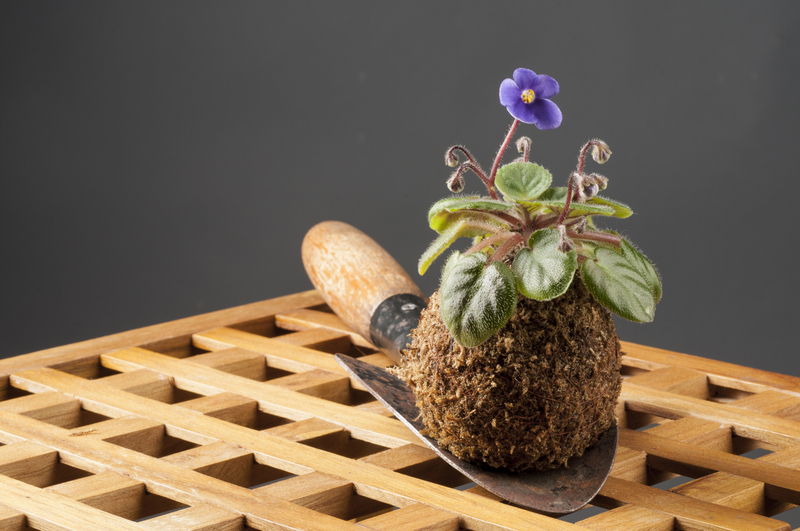Designing Outdoor Fun and Safety for Kids
Posted on 08/09/2025
Designing Outdoor Fun and Safety for Kids: The Ultimate Guide
Creating a backyard, playground, or neighborhood park with outdoor fun and safety for kids at its core is an essential aspect of childhood development and family well-being. Not only do safe, well-designed outdoor spaces invite joy and creativity, they also provide opportunities for learning, growth, and building lifelong memories.
Why Prioritize Outdoor Fun and Safety for Kids?
Outdoor play remains one of the most effective ways to support children's physical, emotional, and cognitive growth. By ensuring safe outdoor environments for children, parents and guardians encourage exploration, risk-taking within limits, and social interaction among peers.
- Improved motor skills
- Boosted immunity and physical health
- Enhanced creativity through imaginative play
- Development of social skills
However, the key to maximizing these outdoor play benefits is designing play areas where safety and fun go hand in hand.

The Fundamental Principles of Safe and Entertaining Outdoor Spaces
To achieve a setting where excitement meets security, consider these core principles when designing outdoor spaces for children:
1. Age-Appropriate Design
Play equipment and layouts must correspond to the abilities and needs of different age groups. Considerations include:
- Infants and Toddlers: Surfaces should be soft, equipment low to the ground, and enclosed spaces provided for crawling or toddling.
- Preschoolers: Structures for climbing, sliding, and imaginative play while ensuring proper barriers and supervision points.
- School-age Children: Areas for sports, bigger climbing structures, or complex games, with separate zones for toddlers and older kids to reduce accidents.
2. Surface Safety and Materials
The surface beneath playground equipment is critical for injury prevention.
- Shock-absorbing Surfaces: Mulch, sand, engineered wood fiber, or poured-in-place rubber reduce the risk from falls.
- Non-toxic Materials: Opt for environmentally safe materials to minimize exposure to harmful chemicals.
- Regular Maintenance: Inspect surfaces regularly for wear and proper depth.
3. Secure and Visible Layouts
Visibility is crucial for supervising children and deterring unsafe behavior or potential hazards.
- Designing open sight lines for caregivers throughout the outdoor play area.
- Placing benches or seating near play areas for comfortable supervision.
- Minimize hidden corners and overgrown bushes that could obscure view.
4. Equipment and Space Variety
An engaging outdoor play space for kids must spark curiosity and invite diverse activity.
- Physical Play: Slides, swings, climbing walls, and seesaws foster gross motor skills.
- Imaginative Play: Playhouses, sandboxes, and themed structures ignite creativity.
- Natural Elements: Rocks, logs, and gardens connect kids to nature.
- Quiet Zones: Shaded areas or benches for rest and regrouping.
Steps to Designing a Safe Outdoor Play Area
Let's delve into a step-by-step process for designing outdoor fun and safety for kids while ensuring compliance with recognized standards.
Step 1: Site Assessment and Planning
Evaluate your available space. Take note of:
- Sun and shade patterns for comfort
- Existing slopes or drainage to prevent water accumulation
- Neighboring hazards like busy roads, ponds, or pools
Step 2: Set Priorities and Goals
Identify your top goals. Do you want a space for active sports, imaginative play, or a mix of both? Prioritize safety features in outdoor designs such as fences, gates, and soft surfacing.
Step 3: Choose Equipment and Materials
- Check for age recommendations and installation requirements.
- Use weather-resistant, smooth-edged, and sturdy materials.
- Invest in safe surfacing like engineered wood fiber or rubber matting.
Step 4: Layout and Zoning
Separate areas for different age groups or play types. Design pathways and open spaces for circulation.
- Install fencing and self-latching gates where necessary.
- Ensure a minimum of six feet clearance around play equipment.
Step 5: Supervision and Signage
Effective supervision is the linchpin of outdoor safety for kids. Include:
- Easy access for adults to supervise kids at all times.
- Clear, friendly signage on safe play rules.
- Emergency instructions and first aid supplies nearby.
Step 6: Ongoing Maintenance
Regular inspections ensure ongoing safety. Schedule monthly checks for loose bolts, damaged parts, splinters, and debris.
Embedding Fun into Outdoor Play Designs
Designing for fun requires understanding what delights kids and keeps them coming back.
Incorporate Sensory Play
Children learn best with hands-on experiences. Offer:
- Sand and water tables for tactile exploration
- Musical or sound-making elements
- Colorful murals or interactive panels
Provide Opportunities for Risk and Challenge
Healthy risk-taking is vital for developing resilience. Choose equipment with graduated difficulty:
- Balance beams, stepping stones, or climbing nets
- Zigzag paths or mini obstacle courses
- Loose parts like buckets, ropes, or planks for creative building
Create Spaces for Social and Cooperative Play
Children thrive on collaboration and competition. Design areas for team games, group swings, or shared sandboxes.
Natural and Eco-Friendly Play
Prioritize green spaces, trees, pollinator gardens, and edible plants. Not only do they encourage curiosity, they promote environmental stewardship and healthy habits.
Essential Safety Tips When Designing Outdoor Spaces for Children
No matter the size or scope, every child-friendly outdoor area should adhere to certain safety principles:
- Keep surfaces soft: Proper ground cover under all elevated equipment.
- Eliminate sharp edges: Smooth materials and rounded corners on all structures.
- Guard rails and barriers: Prevent falls from high places.
- Secure hardware: Fastenings should be tight, with no protruding bolts or entrapment hazards.
- Avoid toxic plants and chemicals: Research landscaping options and maintain chemical-free play zones.
- Minimize tripping hazards: Bury or clearly mark any exposed roots, rocks, or hoses.
Weather-Proofing and Sun Safety
- Include shaded areas, whether from trees, sun sails, or built shelters.
- Use non-slip surfaces for wet conditions.
- Ensure structures can withstand local climactic challenges (wind, rain, heat, or snow).
Accessibility for All
Designing an inclusive play environment not only supports children with disabilities but enriches the play experiences for everyone.
- Install ramps, wide paths, and ground-level play features.
- Use contrasting colors and textures for navigation.
- Include quiet, retreat spaces for sensory-sensitive kids.
Best Practices for Parents & Caregivers: Safe Outdoor Play Guidelines
As much as design matters, adult supervision and education are vital to ensuring outdoor safety for children. Here are some tips for parents and caregivers:
- Perform a daily equipment check before play begins.
- Teach children the rules of safe play (waiting turns, using equipment properly).
- Dress children in sun-safe clothing, closed-toed shoes, and hats.
- Keep the play area clear of bikes, backpacks, and loose items that may cause trips and falls.
- Establish boundaries, especially in larger yards or public parks.
- Be prepared with bandages, water, and emergency contacts on hand.
Outdoor Fun Activities to Stimulate Creativity & Growth
Beyond equipment, having a plan for engaging outdoor activities for kids adds more scope for learning and play.
- Backyard scavenger hunts for nature treasures
- Obstacle courses using everyday items
- Gardening projects: planting seeds, watering, and harvesting
- Outdoor art days: painting rocks, chalk on pavement, or mural work
- Story time with nature-themed books in a shaded spot
- Water play: sprinklers, splash tables, or gentle water balloons (always supervised)

Current Trends in Designing Child-Friendly Outdoor Spaces
Modern playground design increasingly focuses on nature-based solutions, open-ended play, and sustainable materials. Trends include:
- Nature Playgrounds: Incorporating logs, boulders, and native plantings to blend play into the landscape.
- Inclusive Playgrounds: Designing for abilities of all children, with multi-sensory elements and wheelchair accessibility.
- Community-led Design: Involving families and kids in the design process for more meaningful spaces.
- Non-prescriptive Play Equipment: Items like loose parts, forts, and climbing nets that invite creativity and problem-solving.
- Green Infrastructure: Rain gardens, educational gardens, and permeable surfaces for sustainability and learning.
Conclusion: Combining Adventure and Assurance
Designing outdoor fun and safety for kids is a thoughtful balance of joy, challenge, and protection. By choosing appropriate equipment, safe materials, smart layouts, and ongoing supervision, parents and communities can offer vibrant, secure play environments where kids thrive. The goal is simple: every child deserves the freedom to explore, laugh, and learn outdoors while adults enjoy peace of mind.
Whether you're transforming a backyard, installing a school playground, or advocating for a community park, remember: fun and safety are inseparable in the best outdoor spaces for kids.
Let's nurture the next generation by turning every garden, playground, and park into a safe haven for adventure, discovery, and happy childhood memories!
Latest Posts
Green Walls and Vertical Gardens: Beauty Reimagined
Recycling Organics into Lush, Growing Soil
The Magical World of Herb Gardening

